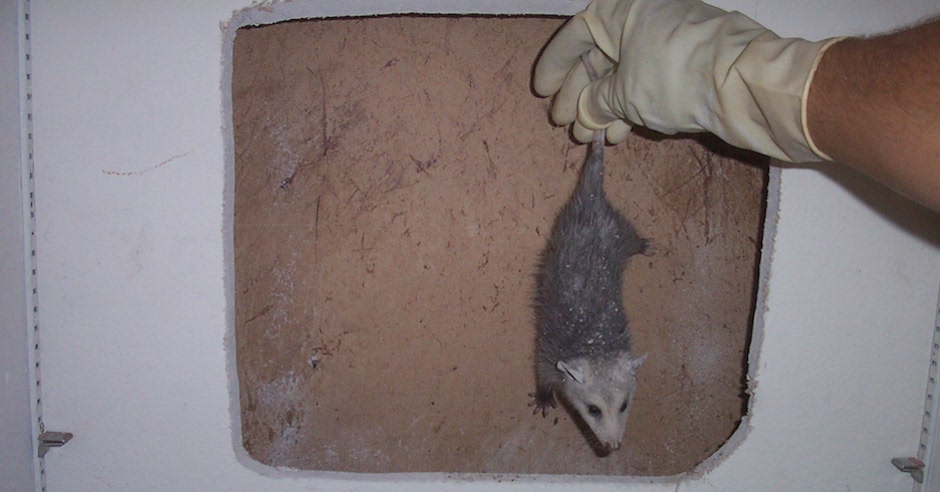Can I Handle An Opossum Bare Handed Or Do I Need Something For Protection?
In short, you need something for protection. Since opossums typically take up residence in pre-made shelters, its not unusual for them to wander inside. You may encounter them in old abandoned buildings or sheds.
While they do tend to avoid people, they are often encountered in the wild as well. Opossums are nocturnal, so they are usually seen at night. They may look fuzzy and docile, but they are far from it.
No matter where you encounter them, opossums are still wild creatures. They aren’t known as aggressive creatures. However, they have long sharp claws and pointed teeth that they will use to defend themselves.
Opossums are wild animals that survive on instincts. Since they don’t ‘reason,’ they can’t tell that you are trying to help them. If they feel cornered or threatened, they will lash out.

Opossum Dangers
Opossums are highly resistant to many conditions that are harmful to humans. For instance, they can handle the bite of many aggressive snakes that would prove fatal to humans. Opossums are also resistant to rabies, but they can be a carrier.
One can never tell what harmful diseases a wild animal is carrying. It is best to protect yourself as many of these diseases are transmitted through broken skin. It is never recommended that unexperienced people attempt to handle wild animals.
If you must handle an opossum, here are some recommendations for doing it safely.
Safe Opossum Handling
If you come across an opossum, it wouldn’t be unusual for it to play dead. This is one of its best defenses. Many people get hurt attempting to handle an opossum they assume is dead.
If you are in a situation where you must attempt to handle an opossum, it is best to wear long, thick gloves. They should be long enough to protect the forearms and thick enough that the animal’s claws won’t easily penetrate.
Experts recommend waving one hand in front of the animal’s face to distract it. This creates the opportunity for you to grab the animal by the tail with the other hand. Most often, the animal will hang upside down unable to bite or scratch you.
It is important to hold the animal out away from your body. This prevents unexpected bites and scratches. The animal will be startled and, no doubt, scared. However, you should be able to carry the animal, unharmed, to the cage or carrier for safe transport.
If you do receive and injury that breaks the skin, you should seek medical attention immediately.
Visit our Wildlife Trapper Bowling Green home page to learn more about us.

